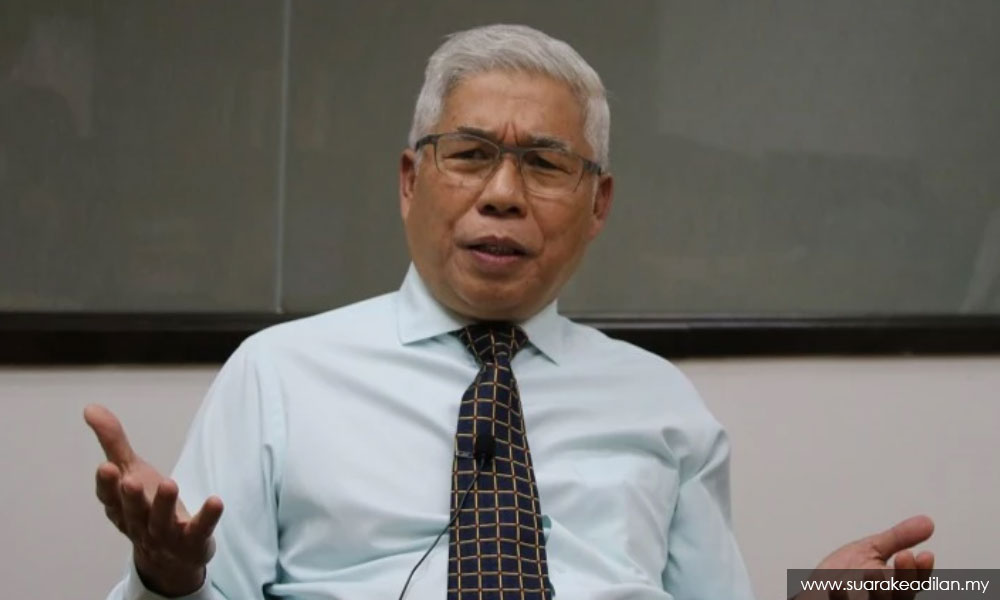KINIGUIDE | All eyes are on Najib Abdul Razak after the former premier claimed that the previous Yang di-Pertuan Agong had given him additional clemency.
Apart from the halved prison sentence and heavily reduced fine, Najib claimed that on Jan 29, the former king issued an addendum to the Pardons Board decision - which would allow him to be placed under house arrest.
Therefore, Najib is seeking leave to compel various government representatives - the home minister, the attorney-general, the Pardons Board, the federal government, and a few other respondents - to confirm the royal addendum.
In this instalment of KiniGuide, Malaysiakini will dwell on a “house arrest” and what it entails - and if such a provision exists in the current legal framework.
What exactly is a ‘house arrest’?
Criminologist P Sundramoorthy of Universiti Sains Malaysia’s Centre for Policy Research explained that a house arrest programme in civil democratic societies involves an order to confine individuals to their homes for the duration of the sentence, except for certain reasons such as medical appointments or court appearances.
These individuals, Sundramoorthy said, will often require authorisation to leave their residence.
Typically, individuals on house arrest have a curfew, which requires them to remain at home during specific hours or overnight.
“Electronic devices such as ankle bracelets are used to monitor their movements and activities.
“The device tracks their location, ensuring that they stay within the prescribed geographic boundaries,” he told Malaysiakini.
While these individuals are allowed to leave their residence for work, school, medical appointments or other authorised activities, he said they must return within the designated period.
Who can request and what are the conditions?
This might come as a surprise to many, but the answer to this is no one can apply or request for “house arrest” in Malaysia.
Criminal lawyer Goh Cia Yee clarified that there is currently no application process for “house arrest” as there’s no such provision in the country's legal system.
Wait a minute! This ‘provision’ doesn’t exist in Malaysian law?
The short answer to this burning question is no.
Goh asserted that “house arrest” or “house detention” is not an existing alternative to imprisonment.
Lawyer-cum-Pasir Gudang MP Hassan Abdul Karim concurred, saying there are no regulations or subsidiary legislations about “house arrest”.

“I don’t hear any bill tabled in the Parliament for such provisions called ‘house arrest’.
“Without proper statutes or acts, nobody can apply for house arrest. This is totally against the principle of rule of law,” the PKR lawmaker stressed.
But do we have somewhat similar provisions?
Lawyer Andrew Khoo pointed out that Section 43 of the Prison Act 1995 allows for the release of any prisoner “on licence” but it is “subjected to any regulation made by the minister” - in this case, falls under the purview of Home Minister Saifuddin Nasution Ismail.
The provision also stipulates that the “conditions” for the release of any prisoner “may be specified in the licence”.
In March, Putrajaya had agreed in principle to implement the licensed prisoner release, through home detention, for prisoners serving jail time of four years and below, as an effort to reduce overcrowding in prisons.
Saifuddin said his ministry is in the process of examining the implementation method from the point of view of relevant legal provisions, and whether the existing laws and regulations need to be amended.
Preacher Wan Ji Wan Hussin was one of the individuals let out of prison under the Licensed Release of Prisoners programme.

Speaking to Malaysiakini, Wan Ji’s lawyer Saiful Izham Ramli said the programme allows an inmate to live outside the jail, albeit with limited mobility and the need to seek approval to conduct any activities.
“Wan Ji was not placed on house arrest, but a licensed release. As usual, the prisoners will apply for the programme through their lawyers.
“The Prisons Department will decide whether to grant approval or otherwise. Most of the time, the department will send these prisoners to work under employers, where the employers have to provide accommodation.
“The prisoners will also have to go to the parole office to check in every month,” Saiful said.
Is Najib on the ‘list’?
According to Saifuddin on March 4, the incarcerated former prime minister is not eligible for the “home detention” proposal.
The minister told Malaysiakini that only prisoners serving less than four years of jail time, senior citizens, pregnant women and people with disabilities will be on the home detention list.
He also reportedly dismissed the claim that the home detention policy was meant to allow Najib to serve his remaining prison term in the comfort of his home as ill-intentioned.
So... can a royal pardon include a ‘house arrest provision’ if it’s not in the law?
Both Goh and Khoo have expressed concerns and raised questions over this matter.
Goh opined that the powers of the Agong to grant a pardon should be limited to the legal avenues available for sentencing.
This, Goh said, would either be granting Najib a full pardon or a reduction of the former premier’s sentence.
“We are not sure at this juncture what the alleged addendum order means when it mentions house arrest.
“Did it specify the exact conditions of this house arrest? It could be extremely vague, which in turn would make such an order unenforceable. Does it mean a curfew or complete confinement at home?” he questioned.
Khoo was of the view that it might be unconstitutional for the Agong or Pardons Board to order a home detention.
Citing Articles 42(1) and 42(2) of the Federal Constitution, he voiced concerns about whether the Agong’s power to grant pardons and commute a sentence can include the power to direct that a convicted person serves his sentence in a particular way.
Article 42(1) stipulates that the Agong has the power to grant pardons, reprieves and respites in respect of all offences in the Federal Territories of Kuala Lumpur, Labuan and Putrajaya.
Article 42(2) refers to any power conferred by federal or state law to remit, suspend, or commute sentences for any offence shall be exercisable by the Agong. It also mentioned that this power can be exercised without prejudice to any provision of federal law relating to the remission of sentences for good conduct or special services.
“The general question that might be asked is whether the words ‘pardons’, ‘reprieves’, ‘respites’, ‘remit’, ‘suspend’ and ‘commute’ can be said to extend to describing the manner in which a sentence is to be served,” Khoo told Malaysiakini. - Mkini




No comments:
Post a Comment
Note: Only a member of this blog may post a comment.